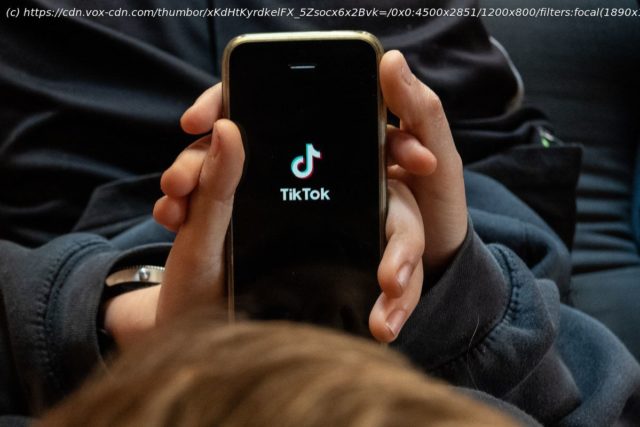The House passed a bill to ban TikTok on Wednesday. But it’s not over yet.
The House passed an audacious bill on Wednesday that could potentially ban the social media app TikTok, generating a furor on Capitol Hill and online.
President Joe Biden has said he will sign the bill if passed. But it still needs to clear the Senate, where discussions are underway to draft companion legislation.
Sen. Mark Warner (D-VA) will be at the center of the charge in the Senate and has been coordinating with the bill’s House sponsors as well as his Republican counterpart on the Senate Intelligence Committee, Sen. Marco Rubio (R-FL), a Senate aide familiar with the discussions told Vox.
Warner thinks the House version isn’t a perfect bill: He’s been advocating for broader legislation that would also rein in other foreign tech companies. But he believes that it’s currently Congress’s best shot at getting something passed to protect Americans’ digital privacy, the aide said. It would have to pass the Senate by unanimous consent, or else get referred to the Senate Committee on Commerce, Science, and Transportation, where it would likely stall, according to the aide.
However, the bill — which would require TikTok’s Chinese parent company ByteDance to divest from the app within 165 days or else it will be removed from US app stores — is already facing some opposition in the Senate, which could doom the effort. Sen. Rand Paul (R-KY) told the on Tuesday that he would oppose any measure that violates the Constitution and that Congress should not be “trying to take away the First Amendment rights of [170] million Americans.”
To that end, there has already been a revolt from users. Last week, the social media app told its users to call their members of Congress in protest of the new bipartisan bill, arguing that a ban would infringe on their constitutional right to free expression and harm businesses and creators across the country.
Teens and older people alike reportedly pleaded with congressional staff, saying they spend all day on the app. Creators posted on TikTok urging their followers to do the same. Some offices decided to temporarily shut down their phone lines as a result, which meant that they couldn’t field calls from their constituents about other issues either.
Lawmakers in both parties didn’t take kindly to the impromptu lobbying frenzy. Some characterized it as confirmation of their fears that the Chinese-owned app — which is already banned on government devices — is brainwashing America. The overrun phone lines were merely “making the case” for the bill, Rep. Chip Roy (R-TX) wrote on X.
The bill passed the House Wednesday with a vote of 352-65, well above the two-thirds majority threshold required. The White House has backed the bill from the beginning, reportedly providing technical support to legislators when they were drafting it (even as Biden’s reelection campaign has started using TikTok for voter outreach).
Though the bill now has momentum, there’s the crucial question of whether it would survive legal scrutiny even if passed. A federal court recently overturned a Montana law that sought to ban TikTok. Though legislators sponsoring the US House bill argue that it is narrow in scope and would not amount to a total ban on TikTok that would violate the First Amendment, some legal experts believe otherwise.
“In my view, this loaded gun is a ban in all but name, and banning TikTok is obviously unconstitutional,” said Ramya Krishnan, a staff attorney at the Knight First Amendment Institute at Columbia University.






